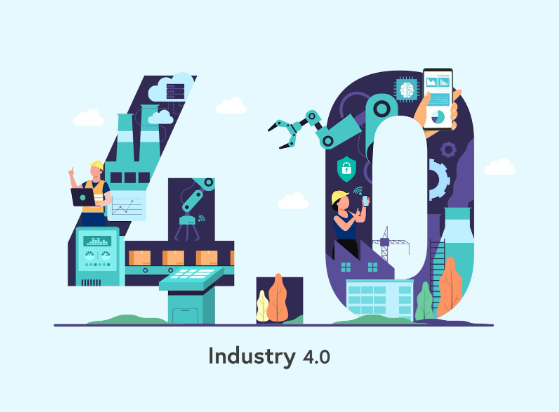Industry 4.0 goes beyond digitization and focuses on human impact. The convergence of disruptive technologies transforms industrial practices and creates products and services aligned with market needs. It is necessary to combine technological enablers with a strategic and people-centered approach. The holistic vision of Industry 4.0 seeks relationships of trust and collaboration between all the actors in the ecosystem.
Category: Insights
Smart service stations: digitization as a driver of conversion
Industries are embracing technology and data management to generate even more value in their business models and the oil and gas industry – especially gas stations – are no strangers to this phenomenon.
Intelligent experiences: innovation as a way to increase customer loyalty
Virtual assistants and chatbots offer an efficient and personalized customer experience, anticipating problems and providing solutions. Intelligence applied to the customer experience improves satisfaction and allows insights into the business and consumer behavior. Intelligent, empathetic and personalized experiences are key to satisfying demanding and informed consumers.
Industry 4.0: a close challenge for SMEs
Spanish SMEs, especially in the industrial sector, have low penetration of digitization and need to invest in technology and change their culture to maintain their competitiveness. The Plan to Promote the Digitization of SMEs 2021-2025 and the European Union funds for digital transformation seek to encourage the adoption of new technologies. SMEs often have a distant perception of Industry 4.0 and make mistakes by thinking that it only involves having a website and storing data in the cloud. To unlock the true potential of Industry 4.0, SMEs need a comprehensive mix of technologies and a holistic view, supported by technology partners and data experts.
From industries to homes: How robots are shaping the future of smart cooking
The new generation of robots in the culinary world uses IoT sensors and artificial intelligence to perform tasks in the kitchen efficiently. These robots can help solve staff shortages, reduce food waste, and improve customer experience. Examples include an autonomous AI system that automates cooking, a barista robot that brews up to 400 cups of coffee, and a robot that fries chicken wings, increasing the speed of food production. The food industry is experiencing technological advances and greater complexity is expected in the management and training of data to program robots.
Industry 4.0: long live the reign of data
The Industrial Revolutions have transformed society and the economy throughout history. The Fourth Industrial Revolution is characterized by the use of data and artificial intelligence, with a high level of information exchange. Companies must migrate towards a data-centric relationship model, organizing and understanding information to meet customer needs and optimize information flows. Before digitizing, you need to organize your data.
Big data and the traps of spurious correlations
In Spain, it is estimated that around 68% of industrial companies are considered "digital novices" or "digital followers", which indicates that they have not yet fully adopted digitalization in their businesses and need to do so to improve their competitiveness. When analyzing large data sets, we warn against finding spurious correlations, where variables may appear related without having real meaning or where a third variable could be influencing them. Therefore, it is essential to interpret the data with caution, remembering that correlation does not imply causation, and to be aware of how graphs and visualizations are constructed to avoid erroneous conclusions.
Tourism and big data: for each other
Massive data management has become a crucial ally to improve the offer of tourism services and facilitate the recovery of the industry after the pandemic. The use of Big Data and management tools allows tourism companies to take advantage of data as raw material to develop effective strategies and gain a competitive advantage. The precise and holistic collection of data, from the origin to the preferences and behaviors of tourists, makes it possible to predict future needs and personalize services. In addition, the ability to share and combine data between different entities and organizations provides a more complete picture of tourists and facilitates agile decision making and the development of adapted products and services.
SMEs and Big Data: 4 axes to start 2023 with a solid data strategy
The majority of Spanish SMEs trust in digitalization and plan to invest in it in the next three years, however, they still need to carry out a digital transformation focused on the efficient management of large volumes of data. Using Big Data strategies can help these companies proactively address problems, generate new opportunities, improve operational efficiency, and build customer loyalty. However, SMEs face challenges such as the integration of different data sources and types, the need to process large volumes of data quickly, and the proper selection and preparation of data. To succeed in a Big Data strategy, SMEs must clearly define business problems, select and prepare the right data, store it securely, and perform extensive analysis to make data-driven decisions. The beginning of a new year is an opportune time to implement digital transformation and Big Data strategies, which requires a change in mentality and strategic focus in these companies.
Data policy: owning your information as the key to the process
Data science strategies are increasingly used by Spanish companies, with a positive impact on organizational performance and higher levels of resilience. It is essential that companies own their data and ensure its quality, and that they adopt a data-driven approach to make strategic decisions based on data analysis and interpretation. Proprietary data management provides flexibility and capacity to address present and future business needs, but requires a data governance policy and adequate attention to data integration, quality, and management.











